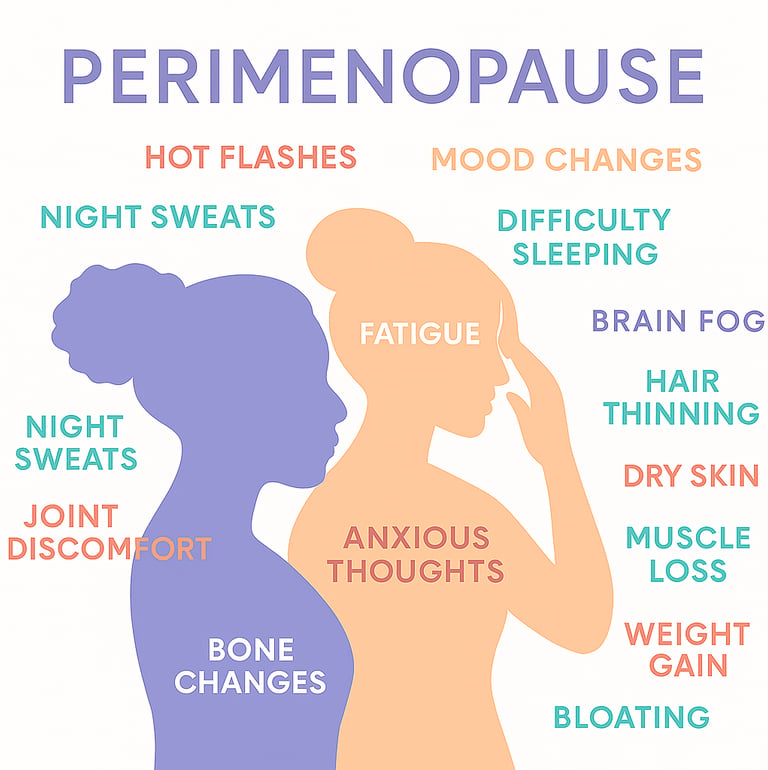Transform your health. transform your life.
Cortisol in Perimenopause: Friend and Foe
Cortisol is a necessary stress hormone that helps us mount our fight or flight response when we are threatened but in Perimenopause cortisol levels can be chronically elevated leading to a cascade of negative effects.
Zakiya Owens, MS, CHC
10/8/20251 min read
Cortisol, often called the “stress hormone,” is a vital part of our survival system. It helps us respond quickly to challenges by mobilizing energy and sharpening our focus. We ABSOLUTELY need cortisol. But during perimenopause, cortisol regulation can get out of balance and that imbalance can take a toll on your health.
How Perimenopause Affects Cortisol
The hormonal fluctuations common during Perimenopause are a stressor on the body. Add to that elevated cortisol levels and you have a recipe for disaster, making your body more sensitive to stress. Elevated nighttime cortisol can disrupt sleep, while chronically high levels may blunt the positive effects of exercise. Cortisol also blocks the calming effects of Progesterone, increasing feelings of anxiety and restlessness. This creates a cycle of fatigue, frustration, and reduced resilience.
Cortisol and Chronic Disease
Chronically elevated cortisol can contribute to insulin resistance, causing the body to store excess fat, particularly in the waist. This contributes to abdominal weight gain (good ol’ meno belly), which is a key component of metabolic syndrome and increases the risk of heart disease and Type 2 diabetes. Cortisol also suppresses your immune system making you more susceptible to inflammation and infections.
Cortisol Busters
The good news? These lifestyle choices can help keep cortisol in check:
Mindfulness & meditation calm the nervous system.
Deep breathing and relaxation techniques lower stress.
Adequate sleep and moderate exercise restore balance.
Healthy connections and laughter buffer stress.
Final Thought
Managing cortisol is a key factor in balancing hormones and easing perimenopause symptoms. Small, consistent, intentional steps toward stress reduction can make a powerful difference in how you feel every day.


You deserve to live well!
Empowering women to thrive through mid-life.
© 2025. All rights reserved.
